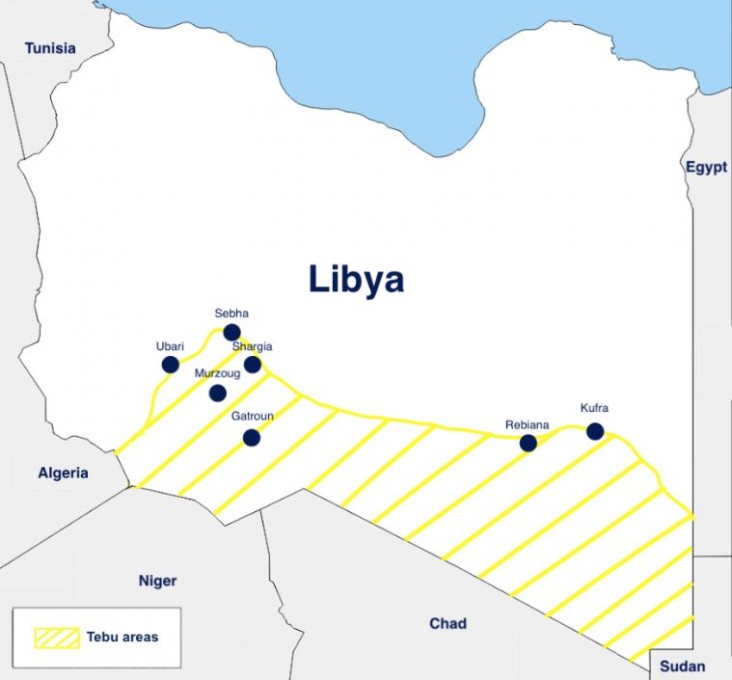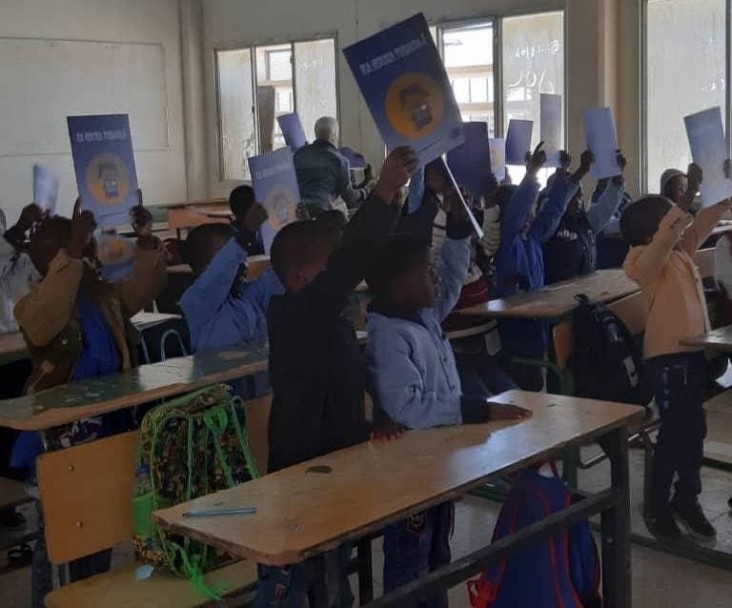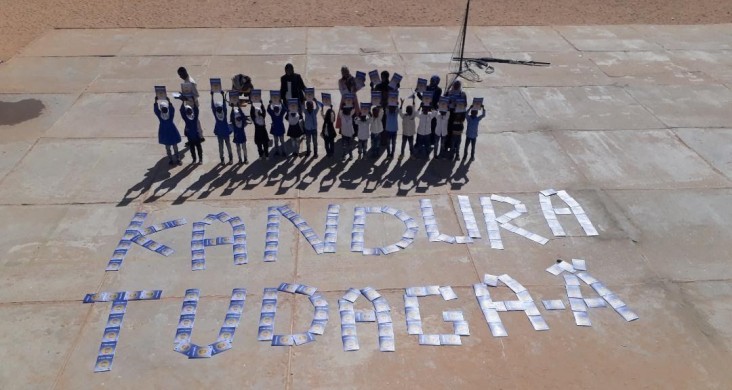Speeches Shim

USAID helps Libyan ethnic minority group with native-language textbooks and curricula
In Libya, children of ethnic minority groups begin school at a significant disadvantage. The educational system is almost entirely based in the Arabic language, but many families speak only their native languages at home. In the classroom, elementary school students struggle to learn both academic concepts and the language in which they’re being taught.
USAID and the National Democratic Institute (NDI) have partnered with teachers, civil society organizations and activists to introduce textbooks and curricula in Tudaga, the language of the Tebu people. More than 6,000 textbooks and workbooks have been distributed throughout the Tebu regions of Libya (see map).
USAID and NDI have been helping the Tebu community in Libya prepare to incorporate their native language in the national education since 2017. The program benefited from the support of civil society activists and a close partnership with the Amazigh community, another ethnic minority group in Libya, that had success teaching in their own native language since 2011. The lessons shared by the Amazigh prepared the Tebu to begin their own native language education.

Despite significant challenges, including active conflict, overlapping authorities and, in some cases, a lack of paved roads and telecommunication services, textbook distribution began in November 2019 to seven municipalities, some of which lie nearly 1,000 miles from Tripoli. “Despite the severe shortages in gas in the south of Libya, where most gas stations are closed and banks have limited liquidity, many textbook distribution costs were borne by distributors themselves, refusing to take any fees,” said a Tebu activist involved in the project. Tebu leaders characterized the arrival of the textbooks in their schools as “a historic day,” with one saying, “We’ve been anticipating this moment for decades.”
The project had a special impact in Obari which, while home to a sizable Tebu minority, is a majority Tuareg municipality. The Tuareg and Tebu have engaged in violent conflict in the past, as recently as 2014. After significant advocacy efforts, the Mayor of Obari, an ethnic Tuareg, accepted Tudaga language education for all students in the municipality, noting that the project could be a bridge between the communities and a source of reconciliation. One teacher in Obari said: “I was amazed that all students were very happy and in tune with the subject. They engaged with full hearts, with no room for hatred and violence.”
The situation is similar in Sabha, a large municipality in the south with many Tebu, Tuareg and Arab citizens. A teacher in Sabha said public feedback has been positive. “Sabha is an ethnically mixed city, and somewhat segregated; Tebu and Tuareg minorities are concentrated in certain neighborhoods, while the Arab majority lives in the rest of town. Since beginning this project, I’ve been approached by Tuareg parents I know, and they told me they not only support Tebu kids learning Tudaga in schools, but their own kids as well. This project is a source of positive coexistence." On February 6, 2020, the Ministry of Education officially accredited Tudaga language classes in elementary schools in southern Libya.

“Usually in Libya, students are very shy in front of teachers, or even afraid of them,” said a teacher in Murzoug. “However, recently, I was walking down a street in Murzoug, a student called to me from the other side of the street. I went to say hello, and the child started singing a song we teach in Tudaga class. When other kids on the street heard him, they too came and started singing along. Everybody in the street stopped and watched with big smiles on their faces."

Comment
Make a general inquiry or suggest an improvement.